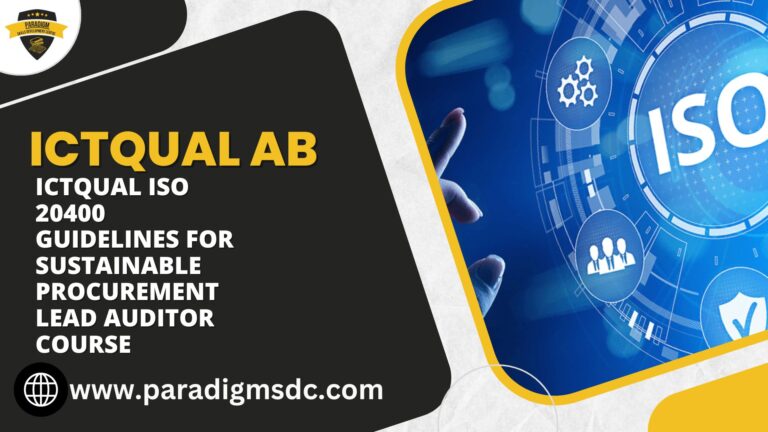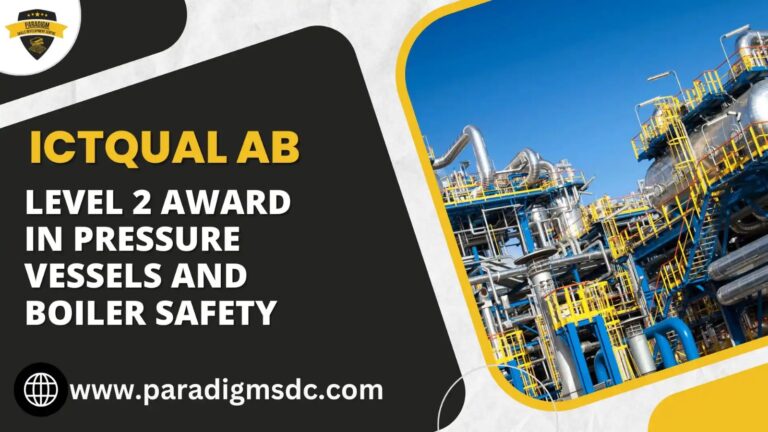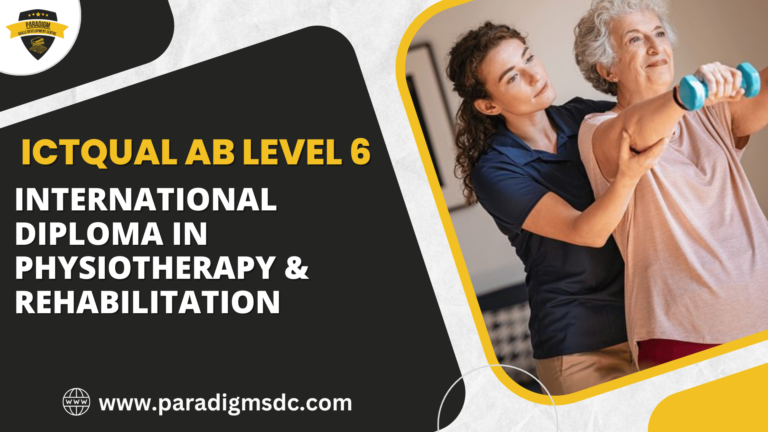Course Introduction
The ICTQual Level 3 Award in HACCP (Hazard Analysis and Critical Control Points) for Food Manufacturing is a specialized training course designed for professionals involved in the food manufacturing industry. This advanced course provides in-depth knowledge and practical skills needed to implement and manage HACCP systems effectively. Ensuring food safety through rigorous hazard analysis and control measures is critical in maintaining high standards and compliance in food manufacturing environments.
Course Overview
HACCP is a systematic approach to food safety that focuses on identifying and managing potential hazards at every stage of the food production process. This course covers the principles and application of HACCP in a manufacturing setting, emphasizing the importance of preventing, eliminating, or reducing food safety risks. Participants will learn how to develop and maintain an effective HACCP plan tailored to their specific food manufacturing processes.
Course Study Units
- Introduction to Food Safety and HACCP
- Food Safety Hazards
- HACCP Principles and Implementation
- Risk Assessment and Hazard Analysis
- Critical Control Points (CCPs) and Monitoring Procedures
- Verification and Documentation
- Regulatory Compliance and Standards
Learning Outcomes
Upon completing this course, learners will be able to:
- Introduction to Food Safety and HACCP:
- Understand the importance of food safety in the food manufacturing industry.
- Identify key food safety hazards and their potential impact on consumer health.
- Explain the basic principles of Hazard Analysis and Critical Control Points (HACCP) and their role in ensuring food safety.
- Food Safety Hazards:
- Identify and classify different types of food safety hazards, including biological, chemical, and physical hazards.
- Understand the sources and routes of contamination in food production processes.
- Analyze the potential risks associated with specific food safety hazards and their implications for product safety.
- HACCP Principles and Implementation:
- Describe the seven principles of HACCP and their significance in preventing foodborne illnesses.
- Explain the steps involved in developing and implementing a HACCP plan, including hazard analysis, CCP determination, and establishing critical limits.
- Demonstrate proficiency in applying HACCP principles to various stages of food manufacturing processes.
- Risk Assessment and Hazard Analysis:
- Conduct hazard analysis to identify potential hazards in food production, storage, and distribution.
- Evaluate the severity and likelihood of identified hazards to determine their level of risk.
- Apply risk assessment methodologies to prioritize control measures and mitigate identified hazards effectively.
- Critical Control Points (CCPs) and Monitoring Procedures:
- Identify critical control points (CCPs) where control measures are essential for preventing, eliminating, or reducing food safety hazards.
- Establish monitoring procedures to ensure CCPs are under control and critical limits are met.
- Develop corrective actions and procedures for addressing deviations from critical limits and maintaining food safety.
- Verification and Documentation:
- Implement verification activities to confirm the effectiveness of HACCP systems and validate compliance with regulatory requirements.
- Maintain accurate documentation of HACCP activities, including hazard analysis, monitoring results, corrective actions, and verification procedures.
- Understand the importance of record-keeping and documentation in ensuring traceability, transparency, and accountability in food manufacturing operations.
- Regulatory Compliance and Standards:
- Understand relevant food safety regulations, standards, and guidelines applicable to the food manufacturing industry.
- Ensure compliance with regulatory requirements and industry best practices in food safety and quality management.
- Demonstrate awareness of the role of regulatory agencies in enforcing food safety regulations and protecting public health.
Course Benefits
- Enhanced Food Safety: Equip learners with the skills to implement robust HACCP systems, reducing the risk of food safety issues.
- Legal Compliance: Ensure compliance with industry standards and regulatory requirements related to food safety.
- Improved Quality Control: Implement effective hazard control measures to maintain high standards of food quality.
- Increased Efficiency: Streamline food safety processes and improve operational efficiency in manufacturing settings.
- Professional Development: Gain advanced knowledge and skills that can enhance career prospects and professional growth.
Who is This Course For?
This course is ideal for:
- Food manufacturing professionals responsible for food safety management.
- Quality assurance and control personnel in food manufacturing.
- HACCP coordinators and managers.
- Production supervisors and managers involved in food safety.
- Individuals seeking to advance their expertise in HACCP and food safety management.
Future Progression
Upon completing the ICTQual Level 3 Award in HACCP for Food Manufacturing, learners may consider further professional development with additional training opportunities, such as:
- ICTQual Level 4 Award in Managing Food Safety: Advanced training for those seeking to take on senior management roles in food safety.
- ICTQual Level 3 Award in Food Safety Supervision: Training for supervisors and managers to enhance overall food safety supervision skills.
- ICTQual Level 4 Award in Food Safety Management: Comprehensive training for those aiming for higher-level management positions in food safety.
By completing this course, participants will be better equipped to implement and manage effective HACCP systems in their food manufacturing operations, ensuring a safer and more compliant food production environment.







